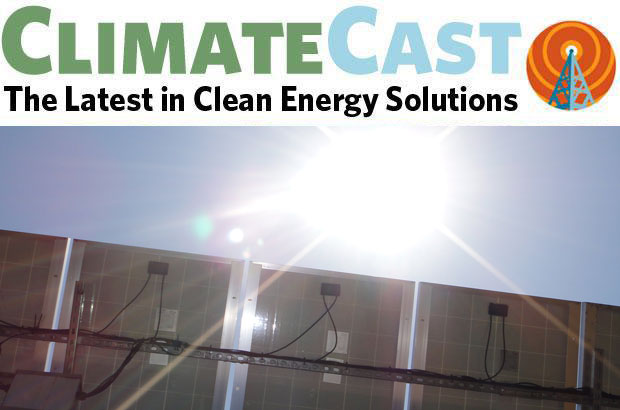A question of where: on climate migration
Media coverage of climate migration often tends toward the alarmist. But the issue of displacement (and who is financially responsible for helping) was a prominent focus at this year’s COP summit in Egypt and is also beginning to appear in US climate news. Late last month, the Biden administration took some initial steps to address the issue of climate migration within the U.S., announcing $135 million in funding for relocating tribal communities due to climate impacts. The funding, part of what appears to be the first program in US history to address climate displacement, is expected to be a model for future similar efforts. The first grants from the program will go to two tribes in Alaska and one in Washington state, each receiving $25 million to help their ongoing efforts to relocate homes, schools, airports, water-supply wells, and other infrastructure. Tribal nations and Indigenous communities have long been on the frontlines of climate impacts, including the threat of sea level rise, flooding, erosion, the intensity of storm surges and tsunamis, and keenly felt cultural loss.
Excited about the fusion breakthrough? Just wait
This week, a scientific discovery made the headlines as it rarely does, thanks to a breakthrough in nuclear fusion energy production at the Lawrence Livermore National Laboratory in California. One typical headline read: “Fusion breakthrough is a milestone for climate, clean energy,” highlighting the possibilities for a new, emissions-free power source. The catch (generally acknowledged by paragraph five or six of such articles): practical electricity-generating applications for fusion are, at best, decades away—decades we have to spend ratcheting down carbon emissions as quickly as possible.
Bill McKibben notes that we can already get vast amounts of clean energy from another, older fusion device- the sun. He also brings up new research published in the journal Nature suggesting that wealthy countries should embrace the climate solution of “degrowth” rather than endless economic expansion. Well-designed degrowth strategies alleviate the need for ever-increasing energy access and clear pathways to achieve equitable prosperity.
Headlines heralding, and perhaps overselling, technological fixes to the climate crisis risk are drawing attention away from the crucial policy work of reducing emissions by replacing fossil fuels with clean energy generation on a large scale. Another source of such distractions may be the ongoing shuffle of celebrity billionaires seeking attention for their own pet climate solutions, which often tend towards the shiny-new-thing factor.
Goodnight, fossil fuels
More Oregon cities are making new commitments to reduce greenhouse gas emissions. Last week, Milwaukie’s city council passed an ordinance calling for all new buildings to be heated by electricity rather than gas systems. Milwaukie’s action follows a similar, pending resolution in Eugene that would ban methane use in new construction. In addition, Portland became the first city in the U.S. to commit to phasing out the sale of petroleum diesel by 2030.
Wolves of Wall Street
Many major investment banks are backing away from climate commitments they made as recently as last year. For example, Pennsylvania-based Vanguard, the world’s largest mutual fund manager, announced last week that it was withdrawing from the Net Zero Asset Managers initiative, encouraging firms to reach net zero emission targets by 2050 and limit global warming. The movement to expand ESG investing—taking into account Environmental, Social, and Governance considerations alongside profits—has gained traction in recent years, but so has blowback from fossil fuel companies. Additionally, in the past year, socially responsible investment commitments have been targeted cynically by Republican elected officials claiming to be concerned about “woke capitalism.” Ben Cushing (Sierra Club) calls these right-wing attacks on sustainable finance “the latest form of climate denial.”
Also of interest: The New Yorker profiled the anti-woke businessman (and Fox News rising star) Vivek Ramaswamy, a leading voice in the movement to choke ESG investing.
Clean energy wins
Continuing the global drawdown of coal-fired power plants, the state of New Jersey commemorated the end of their reliance on coal with a bang, demolishing one of their last plants in dramatic fashion last week. Across the river, construction work has begun in New York on a massive transmission line project that will connect massive hydropower plants in Canada to America’s most populous city, reducing their reliance on coal and fossil gas for power generation. On the national stage, the Biden administration welcomed John Podesta—a political veteran of the Clinton and Obama administrations—back to the White House in what is touted as his toughest role yet: rolling out $270 billion worth of tax credits from the Inflation Reduction Act to spur the deployment of clean energy nationwide, while the New York Times highlighted the surprising role of electric utilities in getting the IRA passed (hint: it wasn’t totally altruistic).
With gratitude…
This will be the final ClimateCast of 2022 as we prepare for a brief holiday hibernation. It’s been a tumultuous year for many people dealing with economic hardship, extreme weather, and health issues; it’s also been a year of significant climate wins on some fronts and of frustrating inaction on others. So we are tremendously grateful to you, ClimateCast readers, for your engagement in climate and clean energy action, and we look forward to working together in the new year (which just happens to be Climate Solutions’ 25th anniversary!).
We wish you peaceful holidays.





